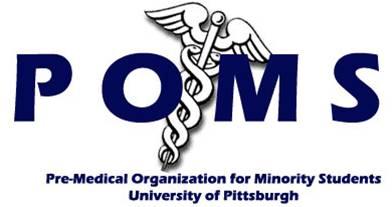

your freshman year
|
Even though med school is still a long time away, there are several things that you should be doing
at the beginning of your education to ensure your success later on. Get off to a good start by doing
the following during your freshman year:
Become involved in the Pitt Pathway. The Pitt Pathway is a 4-step, self-development program that is designed to assist you in choosing and implementing your career. Many of the offices on campus participate in the Pitt Pathway and are available to help you in all of the stages of the Pathway: Self Discovery, Career Exploration, Gain Experience and Implement the Plan. Although you may be certain that you want to pursue a career in medicine, it makes a lot of sense to confirm your decision by working through the Pitt Pathway, starting in your first year. Establish good study habits. Your grades will be one of the most important factors in determining your acceptance to medical school. The only way to earn good grades is to establish good study habits, right from the beginning. If you need some help, contact the Academic Support Center or find a tutor. Develop a close relationship with your academic advisor. Your academic advisor is one of your best resources on campus; he or she can help you to outline your academic curriculum, can make course recommendations, can point you to important campus resources and can act as your guide throughout your education at the University of Pittsburgh. Because your advisor is so important, it is crucial that you get to know this person! Be sure to keep regular advising appointments, and feel free to turn to your advisor when you have questions. Get involved in campus organizations. Although medical schools first look for applicants with good grades, they also want to see that candidates are well-rounded. Getting involved with campus organizations and activities is a great way to round out your education, get leadership experience and meet new people. Contact the Student Life office for a complete listing of campus organizations. Enjoy learning for learning’s sake. Your undergraduate education should not just be preparation for graduate school – be sure to take advantage of all of the learning opportunities available to you, even those that are not related to medicine. Because you will use almost half of your credits to fulfill general education requirements, you have lots of room to take courses in the arts, humanities and social sciences. Work with your academic advisor to plan your class schedules around your interests, as well as your requirements. Also, get in touch with the Study Abroad and Semester at Sea offices to explore opportunities to give your education an international perspective. Get to know your professors. Your professors are outstanding resources for information in their chosen fields. Many of them are doing cutting-edge research and have years of experience working in the sciences or humanities. Take the time to get to know your professors – stop by their office hours or talk to them after class. Developing a relationship with your professors is also important because you will need them to write letters of evaluation for you when you are applying to the Pre-professional Health Committee; you will get a much better letter from a faculty member who knows you personally and is enthusiastic about your application than a professor that barely remembers you and can only write about your grade in his/her class. Participate in pre-med workshops. The Health Professions Counselor offers several workshops each term for students who are interested in a career in medicine. There are always a few that are designed especially for freshmen, so be sure to attend one of these workshops if you get a chance. Begin to take courses in the required sciences. Because you will need to complete all of your required math and sciences (biology, chemistry, physics and calculus) before the end of your junior year, it is important to start to take these courses in your first year. It is especially important to begin the course sequence in chemistry, as you will need to complete a minimum of 2 terms of general chemistry and 2 terms of organic chemistry before applying to any medical school. Please remember that your performance in these courses is VERY IMPORTANT, and will play a significant role in your acceptance to medical school. It is also important to do well in these courses the FIRST time you take them, as medical schools average all of your grades in these courses, not just your most recent grades. |
||
 Home Executive Board Semester Meetings Premed Reqs Freshman Year Sophomore Year Junior Year The MCAT Pre-Professional Health Committee The Interview FAQS |
